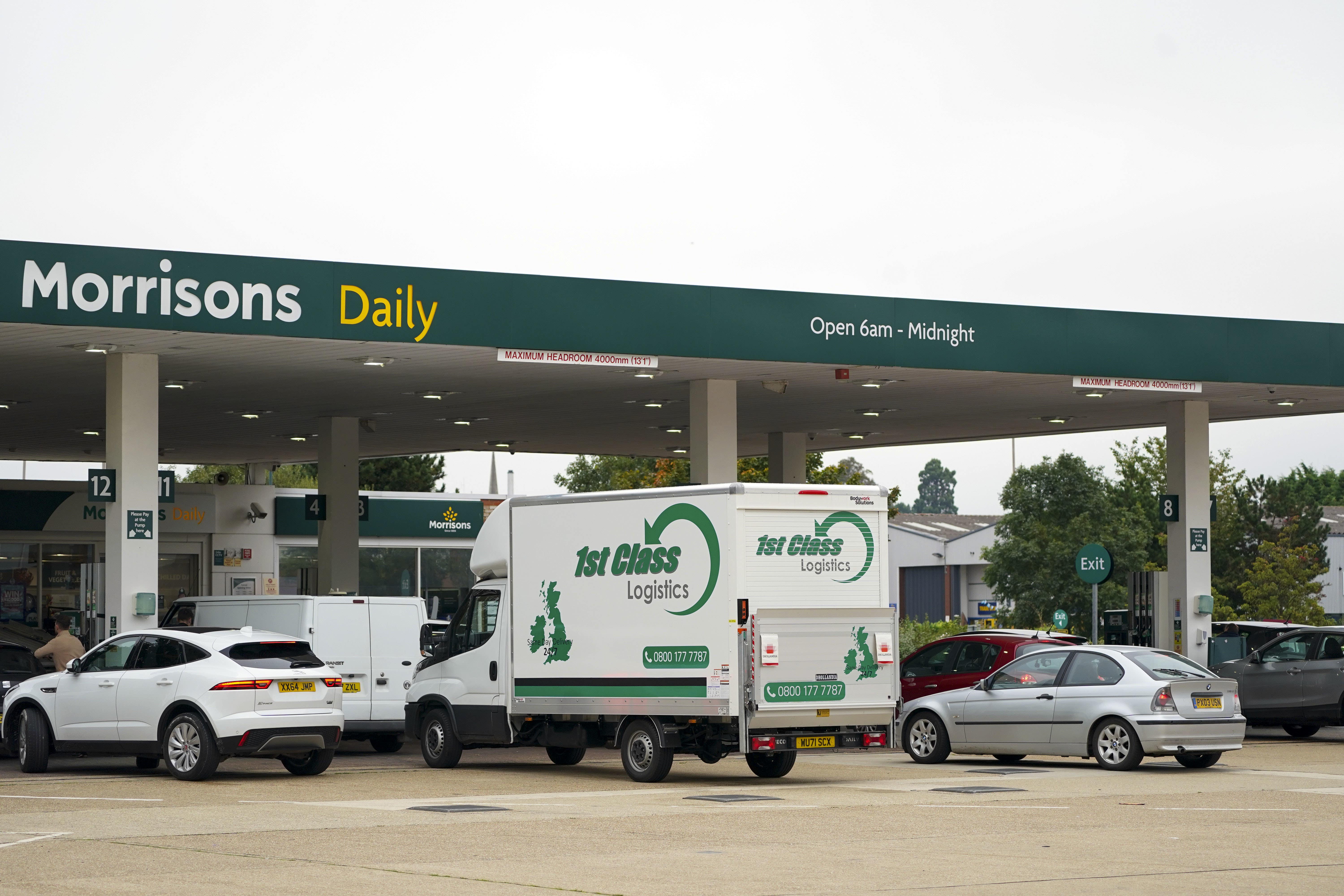Morrisons agrees forecourts tie-up with Motor Fuel Group in £2.5bn deal
Both companies are majority-owned by US buyout firm Clayton Dubilier & Rice.

Your support helps us to tell the story
From reproductive rights to climate change to Big Tech, The Independent is on the ground when the story is developing. Whether it's investigating the financials of Elon Musk's pro-Trump PAC or producing our latest documentary, 'The A Word', which shines a light on the American women fighting for reproductive rights, we know how important it is to parse out the facts from the messaging.
At such a critical moment in US history, we need reporters on the ground. Your donation allows us to keep sending journalists to speak to both sides of the story.
The Independent is trusted by Americans across the entire political spectrum. And unlike many other quality news outlets, we choose not to lock Americans out of our reporting and analysis with paywalls. We believe quality journalism should be available to everyone, paid for by those who can afford it.
Your support makes all the difference.Morrisons has agreed a £2.5 billion deal to sell its 337 petrol forecourts to Motor Fuel Group, which has the same private equity owner as the supermarket.
The retail giant said the proposed deal would also see it take a minority stake of around 20% in Motor Fuel Group (MFG) as part of a strategic tie-up.
Both firms are majority-owned by US buyout firm Clayton Dubilier & Rice.
Under the deal, MFG is set to take on the Morrisons forecourts – including fuel and associated convenience retail operations – as well as more than 400 electric vehicle (EV) charging sites, with plans to invest in further expansion of the EV network and forecourt retail operations.
It means Morrisons customers will continue to see a competitive and attractive forecourt offering, including expanded access to EV charging, while also benefiting from greater focus on investment in Morrisons’ core food business
The chairman of Morrisons, Sir Terry Leahy, said about £2 billion from the deal will be invested back into the supermarket group.
The remaining part of the £2.5 billion deal is covered by the acquired stake in MFG, it is understood.
Sir Terry denied the move was financial engineering but said the funding from MFG will go towards reducing its £5.5 billion debt pile as well as investment in its pricing and store estate.
“Morrisons’ balance sheet is strong and this transaction will further strengthen it,” he said.
“There is currently plenty of liquidity in Morrisons but this does mean there is more money to towards investing in our company infrastructure, paying down debt and putting into prices.”
He also stressed that the deal does not indicate more parts of the supermarket group will be sold off in the near future.
Rami Baitieh, chief executive of Morrisons, said: “As the needs of the customer continue to evolve, Morrisons and MFG’s partnership will see us combine our respective expertise and resources to deliver the best value for customers at the pump, in our convenience stores and in our supermarkets.
“It means Morrisons customers will continue to see a competitive and attractive forecourt offering, including expanded access to EV charging, while also benefiting from greater focus on investment in Morrisons’ core food business.”
The companies said there are not expected to be any compulsory redundancies after the deal, with all Morrisons forecourt staff offered an in-store position.
They added: “In nearly all circumstances this position will most likely be in the store to which the forecourt is attached.”
But at MFG, its workers are employed directly by franchise holders.
MFG – which has 900 sites in the UK – has pledged to roll out 800 ultra-rapid EV chargers across the enlarged estate within the first five years following the deal.
It plans to also boost the forecourt convenience shop environment, food-to-go and car valeting facilities.
Morrisons will continue to supply food and groceries across the forecourt chain, with the opportunity to expand across MFG’s estate.
This strategic acquisition, and the resulting partnership with the highly respected Morrisons brand, is the next major growth investment for MFG
Morrisons said it will use the proceeds of the sale to fund further investment in its grocery stores and food-making businesses, as well as “significantly strengthening the business’s capital structure”.
It is similar to last year’s deal by rival Asda to acquire EG Group’s petrol stations in the UK and Ireland last year.
William Bannister, chief executive of MFG, said: “This strategic acquisition, and the resulting partnership with the highly respected Morrisons brand, is the next major growth investment for MFG.
“It is anchored in the potential for us to accelerate the rollout of ultra-rapid EV charging infrastructure across the UK while also giving customers a first-class retail offer.”